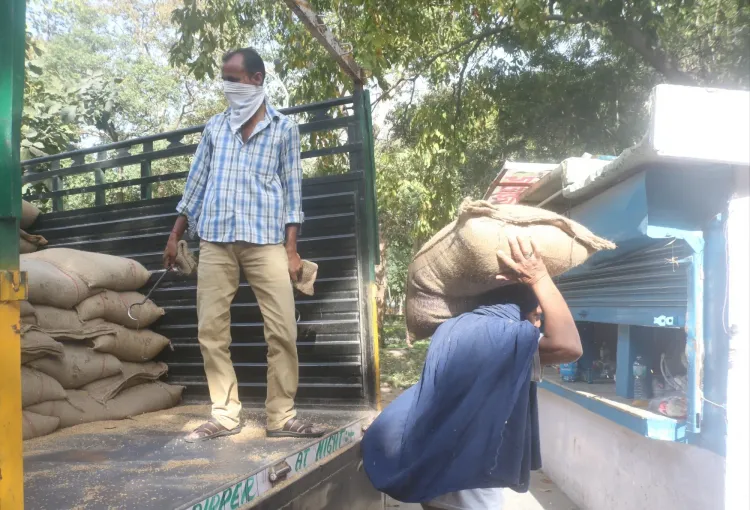Are TN Ration Shop Staff Struggling with Insufficient Funds for Essential Deliveries?

Synopsis
Key Takeaways
- Ration shop staff in Tamil Nadu face financial struggles.
- Current funding for the Thayumanavar Scheme is deemed insufficient.
- High operational costs are burdening workers.
- Rural areas face connectivity challenges affecting service.
- Physical demands of the job impact worker health.
Chennai, Nov 18 (NationPress) Staff members at ration shops throughout Tamil Nadu are voicing their increasing dissatisfaction with what they label as grossly insufficient financial resources to carry out the doorstep delivery aspect of the 'Thayumanavar Scheme', which aims to support elderly and differently-abled individuals.
According to them, the allocation from the Cooperative Department for distribution expenses is inadequate, compelling employees to shoulder personal financial burdens to maintain operational efficiency.
Currently, the department provides Rs 36 per ration card in urban settings, Rs 40 in rural regions, and Rs 100 in hilly areas.
However, supervisors have noted that these funds do not correspond to the actual costs incurred to deliver essential goods to beneficiaries' homes.
Just the expense of hiring mini-load vans can reach approximately Rs 2,000 daily in many areas, which is significantly higher than the average sanctioned amount for a shop.
For shops with more than 40 cardholders under the Thayumanavar Scheme, the total allocation often totals less than Rs 2,000, leaving workers with no choice but to absorb the deficit. Operational difficulties only heighten the financial strain.
Bluetooth-enabled weighing machines frequently malfunction due to poor connectivity, limiting staff to visiting only 15–20 beneficiaries per day.
The expansion of eligibility from individuals aged 70 and above to those aged 65 and above has increased the number of households needing services, while alterations in distribution dates have created confusion for both staff and beneficiaries.
In rural settings, limited internet access complicates biometric authentication, especially for those living alone in secluded areas.
Workers report that many beneficiaries struggle to make cash payments for additional needs when digital networks fail, necessitating revisits or delayed deliveries.
The physical demands of this initiative are also burdensome. Employees often climb several flights of stairs in buildings without elevators, assist bedridden clients, and have to make multiple visits when households are unresponsive.
Exhaustion and illness frequently follow after serving over 20 households in a single day, yet staff are expected to cover much larger clusters.
While senior officials assert that the current allocation is sufficient and that workers can serve up to 70 beneficiaries daily, frontline staff contend that the realities on the ground tell a different story.
They argue that without a revision of delivery allowances and enhanced operational support, the scheme’s goal of offering dignified doorstep services to vulnerable groups will continue to place an unbearable strain on ration shop employees throughout the state.









